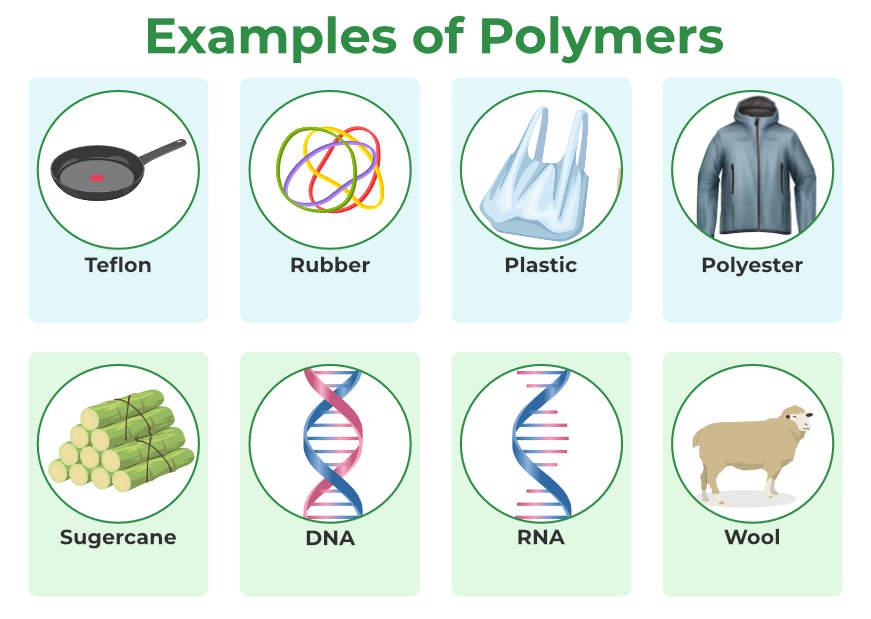Polymers in Health Care: Improving Medical Gadgets and Treatments
Polymers in Health Care: Improving Medical Gadgets and Treatments
Blog Article
Using the Power of Polymers: Comprehending the Extensive Uses and Positive Impacts
Polymers, with their diverse chemical frameworks and residential properties, have actually come to be vital in numerous industries, changing the method we communicate with materials on a day-to-day basis. As we explore the substantial uses of polymers and their role in forming a much more sustainable, effective, and ingenious future, it becomes apparent that their capacity is as huge as the particles themselves.
Flexibility in Everyday Products
Polymers show remarkable versatility in a large variety of daily products, showing their crucial function in modern culture. From the versatile plastic housing of smart devices to the resilient fibers in clothing, polymers have revolutionized the method we connect with items in our day-to-day lives. One of one of the most typical uses polymers is in packaging materials. Polyethylene, for example, is commonly used in food packaging due to its light-weight, resilient, and moisture-resistant homes. Furthermore, polymers play a vital role in the auto market, where they are made use of in producing light-weight elements that boost gas effectiveness.
Eco-friendly polymers are used in sutures and implants, reducing the risk of unfavorable reactions in individuals. In the building and construction market, polymers are integrated right into paints, adhesives, and insulation materials, enhancing toughness and power performance.
Sustainability in Material Innovations
With the continuous emphasis on environmental awareness and source performance, the emphasis shifts towards sustainability in material developments, showing an expanding commitment to accountable production practices across numerous markets. In the last few years, there has been a remarkable surge in the growth of lasting materials, especially within the realm of polymers. These cutting-edge products are developed to reduce environmental influence throughout their whole lifecycle-- from sourcing raw materials to disposal or recycling.
One considerable element of sustainability in product innovations is the principle of biodegradability. Biodegradable polymers have actually amassed focus for their capacity to damage down naturally into safe byproducts, minimizing waste and pollution. Additionally, using recycled polymers stemmed from post-consumer or post-industrial resources is obtaining grip as a way of promoting a round economy and reducing dependence on virgin materials.

Enhancing Efficiency in Engineering
Enhancing efficiency in engineering calls for a thorough combination of sophisticated modern technologies and accurate methodologies to maximize capability and effectiveness in different commercial applications. Polymers play an important duty in this undertaking, providing a large range of benefits that enhance the efficiency of design products and elements.
One key aspect of boosting efficiency in engineering is the capacity of polymers to improve longevity and strength. By integrating polymers right into design styles, suppliers can develop lightweight yet durable frameworks that can hold up against high degrees of stress and anxiety and strain. This characteristic is especially beneficial in industries such as aerospace, automobile, and building, where the need for solid yet light-weight materials is extremely important.
In addition, polymers can also improve performance by supplying thermal and chemical resistance, reducing friction, and enhancing electric conductivity. These buildings make polymers perfect for a vast array of design applications, including seals, bearings, layers, and electronic components. Polymers. By utilizing the distinct residential or commercial properties of polymers, designers can optimize the efficiency of their styles and produce much more effective and explanation reputable products
Influence On Clinical Developments
The combination of innovative polymer innovations has considerably added to cutting edge innovations in the clinical area. Polymers have played a vital function in modern-day medical improvements, varying from drug distribution systems to tissue design. Among the essential locations where polymers have made a substantial effect is in the development of naturally degradable stitches and implants. These polymers can be tailored to degrade at a details price, allowing for better wound recovery and minimizing the need for extra surgeries to remove implants.
Furthermore, polymer-based materials are progressively being made use of in clinical gadgets such as catheters, stents, and prosthetics because of their biocompatibility and adaptability. Polymer coatings on medical tools can avoid infections and improve overall individual results - Polymers. Furthermore, improvements in nanomedicine have allowed using polymer my blog nanoparticles for targeted medication shipment, enhancing the efficiency and lowering side effects of various drugs
Duty in Environmental Preservation

Furthermore, polymers are utilized in water therapy processes, helping in the filtration and recycling of water resources. This assists in lowering water contamination and making certain accessibility to clean water for both human Going Here intake and ecological health and wellness. Polymers also play a function in farming via the development of naturally degradable composts and controlled-release fertilizers, promoting sustainable farming methods.
Verdict
In conclusion, polymers have proven to be a flexible and essential material in various sectors, from day-to-day items to design and medical developments. Understanding the extensive uses of polymers emphasizes their relevance in driving advancement and development in several fields.
Report this page